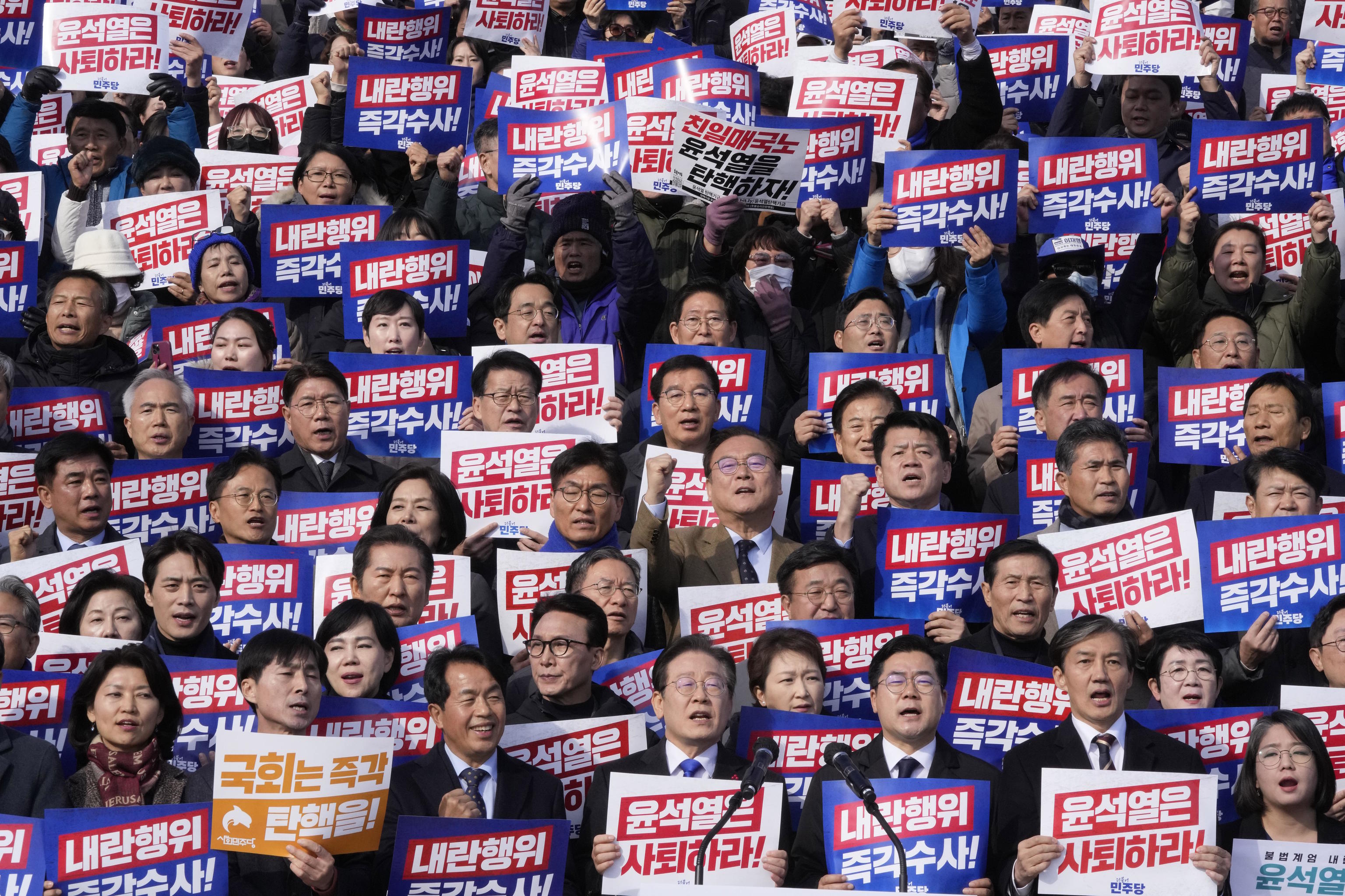Sheung says that the martial law declared on Tuesday night by the president of South Korea, along with the vague pretext that it was due to communist threats, reminded him of the stories his father told him about how previous authoritarian governments, during the Cold War, used that same narrative as justification for the massacres they committed against students and unions.
Sheung, a 27-year-old political scientist, claims that on that long night when his country's democracy was held hostage for five hours by a dark decree, he was ready to confront the military if it had come to that extreme. Like thousands of people, he stood in front of the Parliament until the soldiers withdrew after lawmakers overturned Yoon Suk-yeol's martial law, the former star prosecutor who turned towards a failed unprecedented self-coup in the history of democratic South Korea.
"I would have confronted the military for my father, who participated in the student movements that challenged General Chun Doo-hwan's dictatorship in 1980, which was then supported by the United States. Hopefully, now our ally in Washington will know how to stand on the right side of history," the young man states.
Ultimately, as noted by a university professor named Kwan from the surroundings of the Parliament, South Korean protesters set an example of civic behavior while soberly defending the democratic ideals that were so hard to embrace. "Now, President Yoon has to resign," he says.
This Wednesday, six opposition parties have presented a motion to impeach President Yoon for his brief declaration of martial law. "We have urgently filed an impeachment motion," representatives of these parties said at a press conference.
In Seoul, on the street, the majority opinion is that the leader must leave the Blue House, the South Korean equivalent of the White House. Throughout the morning and afternoon, many legislators, both from the opposition and the ruling party, have passed by the Parliament's door to express their -critical- opinion in front of hundreds of supporters of all kinds of ideologies about the chaos of the previous night.
The entire opposition is intensifying pressure to force the president's departure, and the English word impeachment -the removal process- is on everyone's lips. Even Yoon's own party is turning its back on him. Both right-wing and left-wing media have also come out with scathing editorials against Yoon.
"The martial law seriously crossed the line of acceptable political boundaries, and now accountability must be demanded. What happened was a national disgrace for one of the top 10 democracies in the world," states the conservative newspaper Chosun Ilbo.
"Yoon's declaration was a betrayal of the people. We cannot believe that in 21st-century Korea, an elected president can use the same justification that the military junta used 45 years ago. Yoon has lost the minimum judgment and rationality required of a head of state," adds the left-wing newspaper Hankyoreh.
The People Power Party, the main opposition party, whose legislators jumped barricades and had to push their way into Parliament with the military to vote against martial law, accuses Yook of "insurrection." The country's largest union has also called for an "indefinite general strike" until the president resigns. Even the leader of his own party, from the ruling People Power Party, Han Dong-hoon, has said that the leader must be held accountable.
The opposition parties together control 192 out of the 300 seats in the National Assembly (Parliament), so they would need at least eight legislators from Yoon's own party to join them to reach the two-thirds majority required in the legislature for the impeachment.
As explained by several South Korean political analysts on Wednesday, if the Assembly decides to initiate the process against the president, the formal removal must be confirmed by at least six of the nine judges of the Constitutional Court. If Yoon falls, he would be the second South Korean president to be impeached this century after conservative Park Geun-hye, who ended up in prison for a corruption scandal that Yoon himself led the investigation into when he was the state's attorney general.
"The declaration of martial law is illegal and constitutes a criminal act that directly violates the Constitution. It is essentially a coup," said opposition politician Kim Ming-seok in an unusual English statement to foreign media covering the political crisis in Seoul.
South Korea's internal politics, in addition to being dominated by endemic corruption, has been in recent decades a dirty battleground of fights, many of them surreal, between adversaries of all stripes. But until now, no leader in democracy had gone as far as Yoon, besieged in recent months by the opposition, which has used its control in Parliament to dismiss cabinet leaders and blocked an ambitious budget bill.
